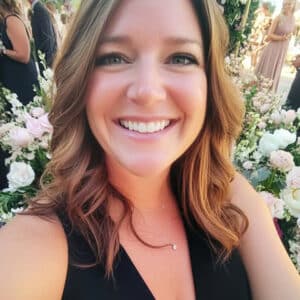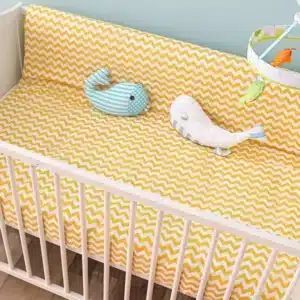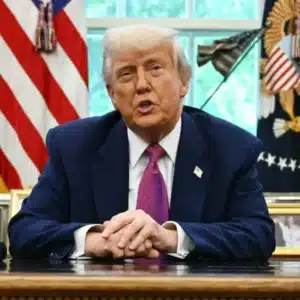When my stepmom sold the one thing my late mom left me — an antique Steinway upright piano — I thought I’d never forgive her. But she had no idea that selling that piano would cost her far more than a piece of furniture.
My mom died when I was fourteen. Cancer. The kind that drags on, stealing a little more each day. By the end, she was barely there. But even when she could hardly walk, every Sunday morning, she played that piano.
It was old, dark mahogany, carved legs that curled like vines, and ivory keys that sang like her voice. She didn’t care what she played — a bit of jazz, classical, a lullaby. I’d sit on the rug with my cereal bowl, watching her fingers dance. That sound? That was my childhood. That was home.
After she passed, people asked what keepsake I wanted. Jewelry? A scarf? A cookbook? I didn’t care about any of it.
“The piano,” I said. “That’s all I want.”
My dad nodded solemnly. “It’s yours, sweetheart. I promise.”
He even put it in the will later — I saw it myself. That piano was legally mine.
And for a while, it stayed right there in the living room, quiet but alive. Like her presence still lingered in the air.
Then came Tracy.
Dad met her when I was sixteen, and I was still in pieces. She came in all sunshine and sugar — blonde curls, peppermint-scented candles, and overly rehearsed smiles. She brought her daughter too — Madison. My age, but everything I wasn’t. Loud, flawless, rich-girl energy. First thing she ever said to me? “You kinda look like a homeless Taylor Swift.”
Nice.
When Dad married Tracy, everything changed fast. First it was photos — mine and Mom’s replaced by beach selfies and “family” shots where I stood off to the side. Then came the purge. Scarves disappeared. Cookbooks? Gone. It was like my mother had never existed.
Except for the piano. That stayed.
Maybe even Tracy knew there were some lines you didn’t cross.
Or maybe she was just waiting.
I left for college. Out of state. I needed space. When I came back for spring break, I was hoping for a few days of peace.
Instead, I stepped into the house… and the piano was gone.
Not moved. Gone.
Just a dusty outline in the carpet where it used to stand. An empty space, cold and loud.
I froze. “Dad?” I called out. “Where’s the piano?”
Tracy’s voice floated from the kitchen like it was nothing. “Oh, that old thing? I had it hauled away. It was falling apart.”
My stomach dropped. “What?”
She appeared in her yoga pants, sipping some kale nightmare. “Sweetie, you never even played it. It was taking up space.”
My chest tightened. “That was my mom’s. That was mine.”
She rolled her eyes. “Come on, don’t be dramatic. It wasn’t even really yours.”
“It was in the will.”
She gave a lazy shrug. “Well, too late now.”
My hands shook. I couldn’t even cry. I just went upstairs and slammed the door so hard a picture fell off the wall.
I texted my dad, fingers trembling: “Where is Mom’s piano?? Tracy said she sold it.”
No reply.
Two days later, Dad came home. I watched him from the upstairs landing. He dropped his bag and walked straight into the living room. He stopped in front of the empty space and just stared, shoulders stiff.
Tracy waltzed in with her smoothie, oblivious. “Oh, you’re back! How was the trip?”
He didn’t look at her. “Where’s the piano?”
She blinked. “What?”
“The piano, Tracy.”
“Oh,” she said, laughing. “I sold it. I figured—”
“There was a Cartier necklace in there,” he cut in.
She stopped cold. “What?”
“I taped your birthday present under the bottom panel. Three thousand dollars. You were never supposed to find it early.”
Her smoothie hit the floor. “You’re joking.”
“I have the receipt.”
She started dialing frantically. “Hi, yes, I sold a Steinway to you last week — I need it back. Urgently.”
I listened from the stairs as panic crept into her voice.
“What do you mean it’s gone? No, I didn’t know! There was something inside—NO, it wasn’t stolen—”
She threw her phone down, shaking. “Why would you hide something in a piano?!”
He was quiet. “Because I trusted you not to touch what wasn’t yours.”
That night, they fought. Loud. Bitter. Her voice sharp and defensive. His was cold steel.
“She’s not a child!” she yelled.
“No,” he replied. “She’s my daughter. And that piano was the last piece of her mother.”
Silence.
“And now it’s gone. So are you.”
By morning, Tracy was gone. Closet half-empty. A note by the coffee pot: “I need space. Don’t call me.”
Dad read it once, folded it, and tossed it into the drawer like a bill he didn’t care to pay.
A week later, he told me he filed for divorce. Simple. Flat. Like he’d finally stepped out of a fog.
“I should’ve stopped it sooner,” he said. “I’m sorry.”
I nodded. There wasn’t much to say.
We never found the piano. Or the necklace. But something else came back.
Dad made pancakes the next Sunday. Like Mom used to. We sat in silence, but it wasn’t empty. It felt like breathing again.
Then, one morning, he asked me to come to the garage.
Under a tarp, there was a secondhand upright piano. Scuffed edges. Worn keys. But carved legs that reminded me of Mom’s.
“I know it’s not hers,” he said. “But it’s yours now.”
I sat down. Laid my fingers on the keys.
The notes came out uncertain. Wobbly. But they were there. And for the first time in years, the house felt full again.
I couldn’t bring the old piano back. But the music — her music — was still inside me.
And that… no one could ever sell.





